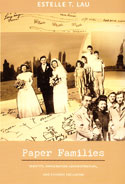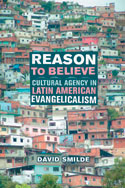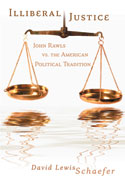Peer Review ::
On the shelf
The Magazine publishes a selection of general-interest books by alumni authors. For additional alumni books, see “In Their Own Words.”
Hezbollah: A Short History, by Augustus Richard Norton, PhD’84, Princeton University Press, 2007. Considered a terrorist organization by U.S. and Israeli policy makers, Hezbollah plays a multifaceted role in Lebanese politics, argues Norton. It began as an extremist Lebanese separatist movement and has developed into an influential political party with militant roots, withstanding Israel’s army in 2006. Hezbollah has divided Lebanon into those who question its aggressive tactics and those who see these actions as a major victory.
Generations and Globalization: Youth, Age, and Family in the New World Economy, edited by Jennifer Cole and Deborah Durham, PhD’93, Indiana University Press, 2007. Viewing globalization’s effects from states to families and individuals, this volume explores daily life in countries around the world. Contributors—including Jessica Greenberg, AM’02, Sarah Lamb, AM’85, PhD’93, and T. E. Woronov, PhD’03—focus on interactions between different generations.
Ships Without a Shore, by Anne R. Pierce, AM’80, PhD’90, Transaction Publishers, 2007. America’s changing childhood experience surfaces in developments like day care’s expansion and the overstructuring of young people’s lives, Pierce argues. Child care neglects nurturing, she says, attacking caregivers who focus on adult fulfillment instead of children’s needs. Pointing to a violent popular culture and the pressure to participate in as many activities as possible, Pierce looks for a more effective bedrock for raising America’s youth.

Paper Families: Identity, Immigration Administration, and Chinese Exclusion, by Estelle F. Lau, AM’89, PhD’00, Duke University Press, 2007. In 1882 the Chinese Exclusion Act eliminated Chinese immigration to America. The legislation, however, still let children of U.S. citizens into the country, and Lau documents how Chinese immigrants used this loophole. She examines “paper families,” relationships immigrants constructed to fool authorities, and how in the 1960s some Asian American activists began to reclaim their family names.

Reason to Believe: Cultural Agency in Latin American Evangelism, by David Smilde, AM’94, PhD’00, University of California Press, 2007. Evangelical Protestantism is growing more rapidly than any other religion in Latin America. Smilde travels to Caracas, Venezuela, to produce an urban ethnography of Pentecostal men and why they find religion materially and spiritually attractive. He finds, for example, that men struggling with addiction and a volatile environment choose evangelism because of the confidence and self discipline it can engender.
Zoar in the Civil War, by Philip E. Webber, AM’68, Kent State University Press, 2007. In Ohio’s Tuscarawas Valley, German separatists created a communal society in 1817. During the Civil War the Zoar villagers—who embodied pacifist ideals but sympathized with the Union and abolitionism—split in two: some abstained from fighting while others joined the Union’s cause. The war led Zoar to become less German and less separate; the town ended its communal experiment in 1898.

Illiberal Justice: John Rawls vs. the American Political Tradition, by David Lewis Schaefer, AM’67, PhD’71, University of Missouri Press, 2007. John Rawls is one of the most widely read political philosophers of the 20th century, but Schaefer argues that he represents a radical departure from traditional American constitutionalism. Critiquing Rawls’s methodology, he says the philosopher ignores human nature and political reality.
The Legal Analyst: A Toolkit for Thinking about the Law, by Ward Farnsworth, JD’94, University of Chicago Press, 2007. Rather than focus on rules and statutes, Farnsworth gives his readers tools that he believes good lawyers master. In each chapter he focuses on a single tool, such as the “prisoner’s dilemma,” a concept from game theory, and hindsight bias, a psychological principle.
The Puritan Origins of American Patriotism, by George McKenna, AB’59, Yale University Press, 2007. Starting with the 1600s, McKenna, professor emeritus of American government at City College of the City University of New York, examines Puritanism’s influence on America’s self-conception. Occasionally critical of patriotism’s effects, including discrimination against Catholics and Southerners, he concludes by looking at the United States after 9/11.
They Say / I Say, by Gerald Graff, AB’59, and Cathy Birkenstein, W. W. Norton, 2007. The first part of persuasion is listening, Graff and Birkenstein argue. To successfully get a point across, they say, writers need to summarize their interlocutors’ points back to them before giving a response. Breaking down the elements of rhetoric, the book gives readers templates to form their own persuasive arguments.